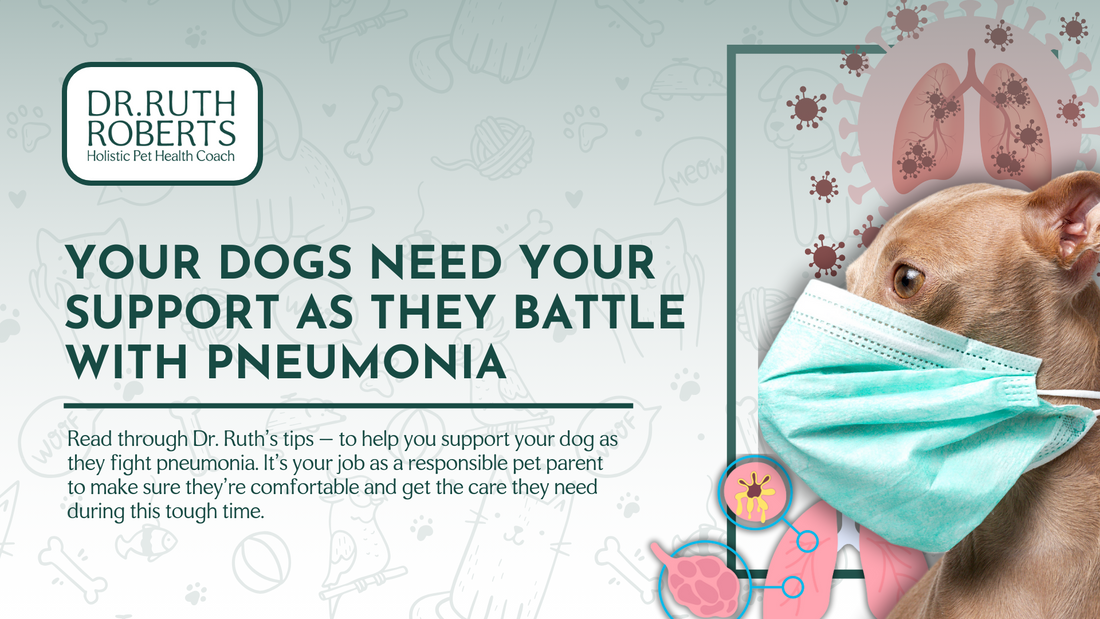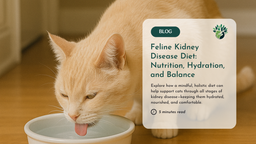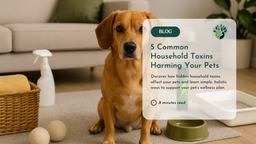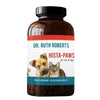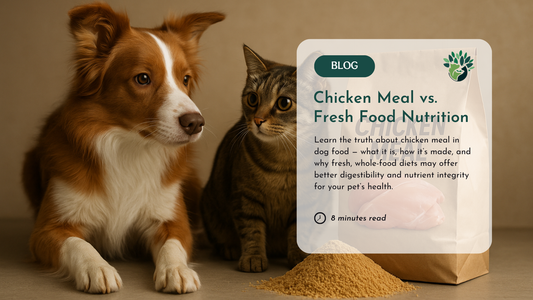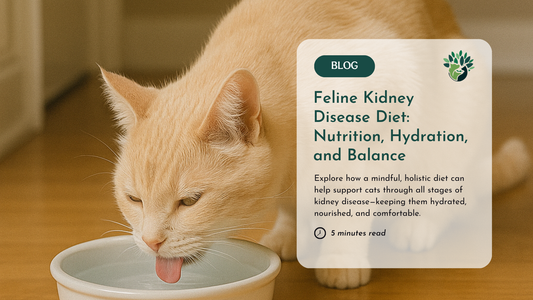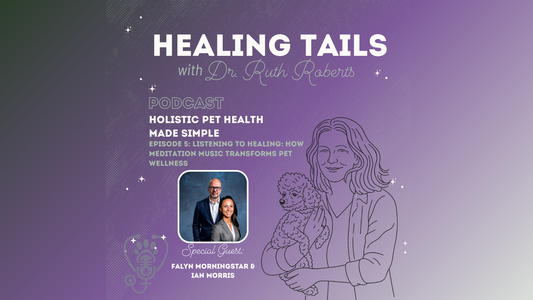Pneumonia is a common respiratory infection in dogs, potentially causing severe health issues if not promptly addressed. Pneumonia in dogs may arise from viral, bacterial, or fungal infections, resulting in breathing challenges, lethargy, coughing, and even life-threatening complications. In this article, we will delve into the key aspects to support your dogs with pneumonia at home, guided by Dr. Ruth Roberts. Let's dive in!
Symptoms of Pneumonia in Dogs
Pneumonia in dogs can manifest through a range of symptoms that indicate respiratory distress and discomfort. Being attentive to your dog's behavior and health is essential for early detection and timely intervention. Here are common signs of pneumonia in dogs: 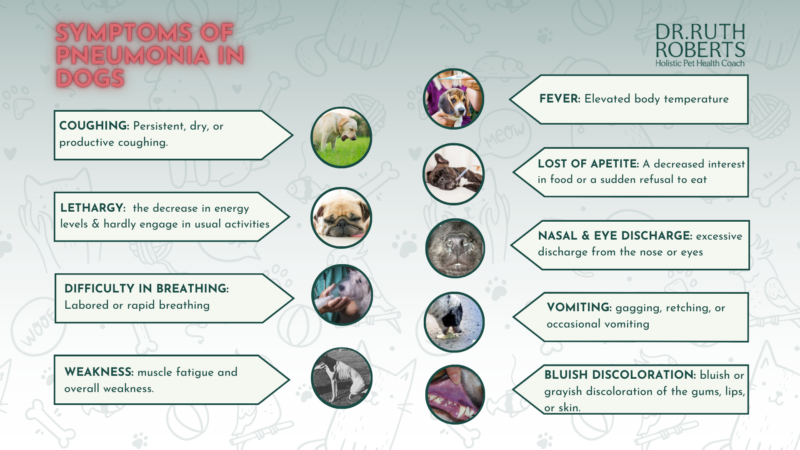 It's important to pay close attention to your dog's usual habits because they are good at hiding when they feel uncomfortable. By watching your dog carefully, you can catch the early signs of pneumonia, which means you can get them to the vet quickly to stop the problem from getting worse and causing serious issues.
It's important to pay close attention to your dog's usual habits because they are good at hiding when they feel uncomfortable. By watching your dog carefully, you can catch the early signs of pneumonia, which means you can get them to the vet quickly to stop the problem from getting worse and causing serious issues.
Home Care Support for Dog with Pneumonia
When caring for a dog with pneumonia at home, diligent attention and proper care are vital for their comfort and smooth recovery. These are the guidelines that encompasses a diverse set of home treatment and strategies to help your dog get better when they have pneumonia.Provide Comfort and Care
- Monitor Respiratory Signs: Keep a close eye on your dog's breathing patterns, watching for any rapid or labored breathing. If breathing becomes noticeably difficult, consult your veterinarian promptly.
- Provide a Calm Environment: Create a quiet and stress-free space for your dog to rest. Minimize exposure to smoke, strong odors, and other respiratory irritants.
- Encourage Rest: Allow your dog ample time to rest and recover. Limit physical activity and play to prevent exertion.
- Elevated Sleeping Area: Provide a comfortable bed or cushioned surface to help your dog breathe more easily. Elevating their head slightly can assist in reducing breathing discomfort.
- Humidify the Air: Use a humidifier to add moisture to the air, which can ease breathing and soothe irritated airways.
- Monitor Temperature: Regularly check your dog's body temperature and ensure they are kept warm, as pneumonia can cause fluctuations in body temperature.
- Avoid Exposure to Other Animals: Isolate your sick dog from other pets to prevent potential transmission of infections.
Hydration and Nutrition
- Maintain Hydration: Ensure your dog has constant access to fresh water to stay adequately hydrated. Dehydration can worsen respiratory distress.
- Soft, Nutrient-Rich Diet: Offer easily digestible, high-quality food to support your dog's immune system. You can create a home-cooked meal like CrockPet Diet specially designed to cater to their condition. This personalized dietary approach ensures that you have control over the ingredients and can cater to any specific dietary requirements they may have.
- Divide Meals: Provide smaller, more frequent meals to prevent overeating and reduce strain on the respiratory system.
Veterinary Care & Supplements
- Administer Prescribed Medications: If your veterinarian prescribes medications like antibiotics, anti-fungals, or other supplements, ensure you follow the recommended dosage and schedule.
- Supportive Supplements: Consult your vet about supplements that may aid in your dog's recovery, such as immune boosters or respiratory-supporting supplements. Your vet can guide you in determining which supplements, if any, are suitable for your dog.
- Regular Veterinary Check-ups: Schedule follow-up appointments with your vet to monitor progress and adjust the treatment plan as needed.
When To Seek Veterinary Care?
It's important to be vigilant and proactive in seeking professional assistance as Pneumonia can escalate rapidly. You should consider seeking veterinary care after recognizing the symptoms and its severity. These signs includes labored or rapid breathing, persistent coughing, wheezing, nasal discharge, lethargy, loss of appetite, and fever.
If you notice any of these indications, your dog might requires immediate medical attention. The severity and duration of symptoms can vary widely. While mild cases might manifest as occasional coughing, more serious instances can involve difficulty breathing and a noticeable decline in your dog's overall health. Dogs afflicted with pneumonia may also experience rapid deterioration, particularly if left untreated, underlining the importance of seeking veterinary care to prevent complications. Accurate diagnosis is pivotal.
Veterinarians employ a combination of methods such as physical examinations, listening to lung sounds (auscultation), X-rays, and potentially blood tests to confirm pneumonia.
As a final thought, Pneumonia can pose serious health risks to dogs if not promptly addressed. Recognizing the signs of this respiratory infection is paramount for early intervention.
By implementing the suggested home care strategies, you can play a crucial role in your dog's recovery. Timely veterinary consultation and diligent monitoring further ensure the best possible outcome. Your proactive efforts and attentive care can make a significant difference in helping your furry companion overcome pneumonia and regain their well-being. 


